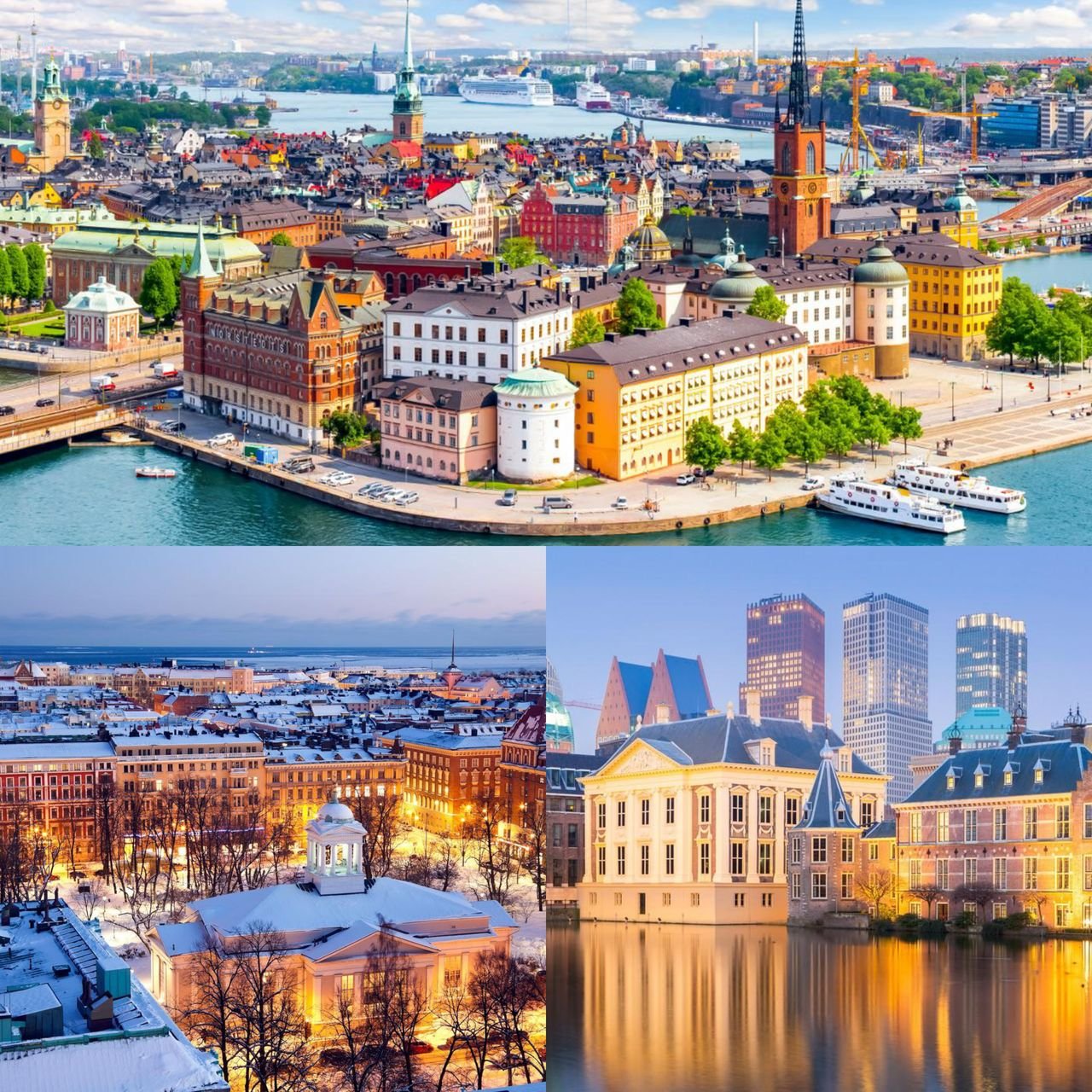For eight consecutive years, the nation that has maintained its position as the world’s happiest has maintained its top-ranked status. The situation in the United States is not as optimistic.
The 2025 World Happiness Report has once again placed Finland at the top of the rankings. However, the United States has achieved its lowest ranking to date, at No. 24. The United Nations International Day of Happiness is commemorated on March 20 in the 13th iteration of the annual report.
The report reveals that the escalation of political polarisation and votes against “the system” in the United States and certain regions of Europe has been considerably influenced by the decline in social trust and happiness.
However, there is some good news: Global research indicates that individuals are considerably more benevolent than we previously believed.
John Helliwell, a founding editor of the World Happiness Report, stated, “People’s fellow citizens are better than they think they are. This realisation will not only make you happier, but it will also alter the way you think about your neighbours.”

“Consequently, you are more likely to perceive a stranger on the street as a mere
Helliwell, an emeritus economics professor at the University of British Columbia, stated, “A friend is someone you have not met, not someone who poses a threat to you.”
In terms of contentment, it is evident that the Nordic countries are implementing numerous effective strategies. Finland has maintained its status as the world’s happiest nation for the eighth consecutive year, with its neighbours closely following suit.
Finland and other Nordic nations continue to have access to high-quality health, education, and social support systems that are universally accessible. Ilana Ron-Levey, managing director at Gallup, also stated that the inequality of wellbeing is low.
The order of the top four countries, which are Finland, Denmark, Iceland, and Sweden, remains unchanged from 2024. Norway remains at the seventh position.
According to Helliwell, Finland’s No. 1 classification is not solely dependent on social support systems that prioritise residents’ welfare; individuals also contribute to the country’s success.
Helliwell, a seasoned lost-wallet researcher, stated, “A welfare state does not locate lost wallets and return them to their owners.” He was referring to data that indicates that Nordic nations are among the top destinations for the anticipated and actual return of lost wallets. “Those are individuals who are concerned about the people with whom they reside.”
Finland’s exceptional performance is also presumably the result of other factors. Helliwell stated that certain Finnish experts attribute the unity and trust that emerged from the Winter War of 1939-40, which was also referred to as the Russo-Finnish War.
“They did not emerge victorious in that conflict; however, they came together and recognised that they could perform admirably in the face of overwhelming power.” Occasionally, the external challenge can serve as a catalyst for unity.
Helliwell also suggested that Finland may benefit from adopting a less materialistic perspective.
“In the present day, it is getting increasingly important to prioritise the personal over the material.”
The 2025 report marks the debut of two Latin American countries: Costa Rica at No. 6 and Mexico at No. 10.
According to Ron-Levey, the residents of both countries possess “strong social networks, strong perceptions about the direction of their economy, and confidence in leaders and institutions.”
The top 10 is completed by Luxembourg (No. 9), Israel (No. 8), and the Netherlands (No. 5).
The United States’ lowest ranking to date
The United States is currently ranked at No. 24 in the most recent World Happiness Report, following its initial exit from the top 20 last year.
Ron-Levey stated that the decline in the United States in 2024 was at least partially due to the fact that Americans under the age of 30 felt less satisfied with their circumstances. “The current generation of young people reports feeling less optimistic about their living standards, less free to make life choices, and less supported by friends and family.”
The report from the previous year focused on the state of happiness among various age categories, emphasising the decline of the young in a number of countries.
The United States is not the sole English-speaking nation that faces difficulties in achieving contentment. The United Kingdom reported its lowest average life evaluation since 2017 at No. 23. Canada, which has experienced a decline in satisfaction over the past decade, maintained its position at No. 18 in the top 20.
Helliwell stated that although the variables that contribute to life evaluations are intricate, there is one “solution” that is accessible to all.
“Take a close look at the individuals with whom you are interacting, whether they are in your workplace, living arrangements, or on the streets, and adopt a more optimistic perspective when interacting with them.” That will alter your conduct in traffic. It will alter your conduct during political discourse. Helliwell declared, “It will revolutionise everything.”
Attitude alterations that can result in increased cooperation can be facilitated by engaging in more active listening and less talkative behaviour.
“Happiness is diminished by negativity,” he declared.
World’s 20 happiest countries in 2025
1. Finland
2. Denmark
3. Iceland
4. Sweden
5. Netherlands
6. Costa Rica
7. Norway
8. Israel
9. Luxembourg
10. Mexico
11. Australia
12. New Zealand
13. Switzerland
14. Belgium
15. Ireland
16. Lithuania
17. Austria
18. Canada
19. Slovenia
20. Czech Republic
Leave a Reply